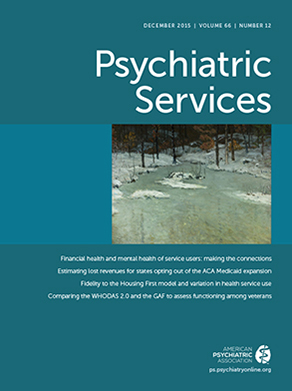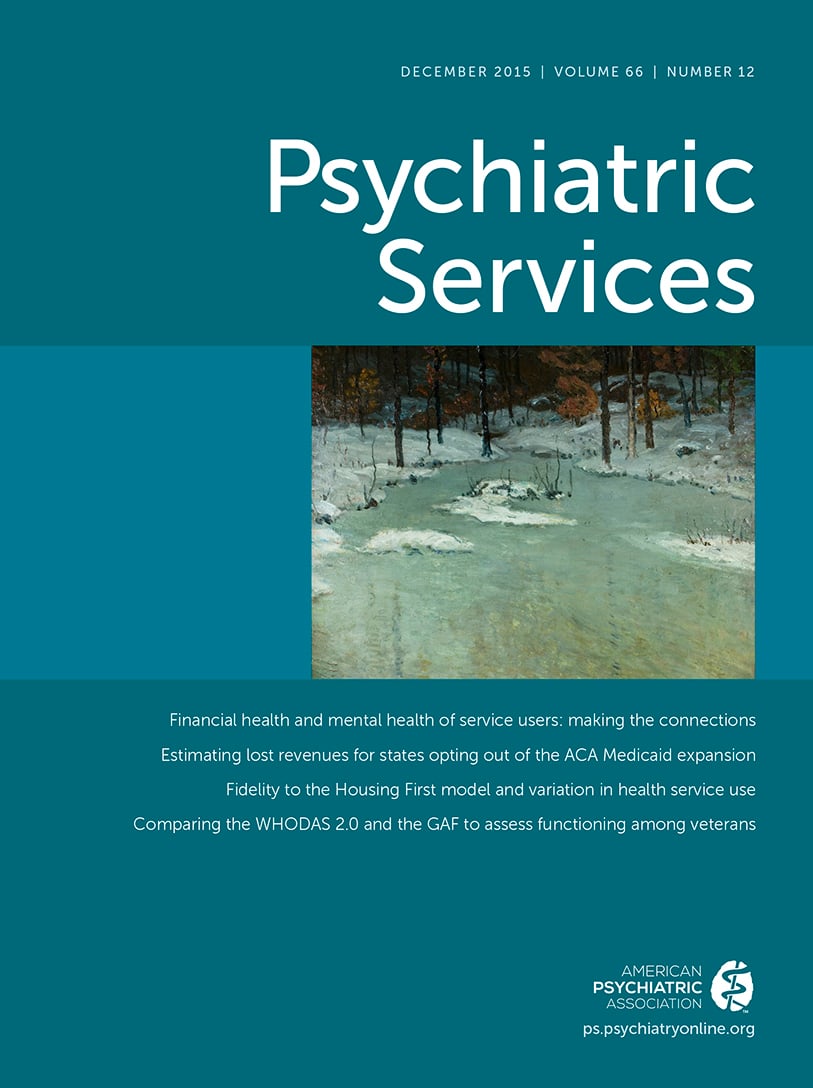Development and Implementation of an Ambulatory Integrated Care Pathway for Major Depressive Disorder and Alcohol Dependence
Abstract
The Rationale for Integrated Care
ICP Components
Psychopharmacological Intervention
Nonpharmacological Interventions
ICP Implementation in Usual Care
Setting the Stage for Interdisciplinary Collaboration
Addressing Implementation Challenges
Building Clinical Expertise
Referral Management and Patient Engagement
Patient Eligibility
Early Outcomes of the Pilot Program
Conclusions
Supplementary Material
- View/Download
- 2.22 MB
References
Information & Authors
Information
Published In

Cover: Winter Woods and Brook, by John Joseph Enneking, circa 1906. Oil on board. Gift of Mr. and Mrs. Stanton Davis (Elisabeth Kaiser, class of 1932). Davis Museum, Wellesley College. Photo credit: Davis Museum/Art Resource, New York City.
History
Authors
Funding Information
Metrics & Citations
Metrics
Citations
Export Citations
If you have the appropriate software installed, you can download article citation data to the citation manager of your choice. Simply select your manager software from the list below and click Download.
For more information or tips please see 'Downloading to a citation manager' in the Help menu.
View Options
View options
PDF/EPUB
View PDF/EPUBLogin options
Already a subscriber? Access your subscription through your login credentials or your institution for full access to this article.
Personal login Institutional Login Open Athens loginNot a subscriber?
PsychiatryOnline subscription options offer access to the DSM-5-TR® library, books, journals, CME, and patient resources. This all-in-one virtual library provides psychiatrists and mental health professionals with key resources for diagnosis, treatment, research, and professional development.
Need more help? PsychiatryOnline Customer Service may be reached by emailing [email protected] or by calling 800-368-5777 (in the U.S.) or 703-907-7322 (outside the U.S.).
